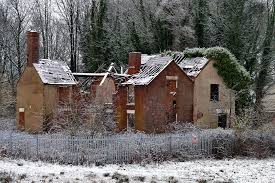
Many steps go into the purchase of a new home. The property is the security for the mortgage loan and is actually the most important part of the purchase. We hope you find these tips for when you select a property helpful.
There are many questions you should ask, but may not know to ask. The prompt here is to advise you that you have every right to press for answer about the largest purchase you will ever make in your life.
Many homebuyers get anxious and in a hurry to get, their home purchase completed. When you purchase a home, you certainly want to take your time in purchasing a quality home (if not new construction) and know that the home is in good or excellent condition.
You want to know that all amenities are in operating order within the dwelling. You want to know that the roof has at least 2 years of remaining economic life (FHA), 3 years (conventional loan), and there are no current leaks. You want to know that all of the electrical work is in good condition, the plumbing, the attic; the basement, garage, and the sewer are in adequate condition.
You cannot tell just by looking at these areas of concern if you are not a professional and do not know what to look for. The appraiser, and home inspector must evaluate the entire structure of the dwelling and everything that is attached to the purchase. You want to know that the value of your home is what the home is “really” worth.
Here is a list of some important observations by the appraiser that must be addressed:
- Legal Nonconforming use of the property- if the property’s zoning is classified as a legal non-conforming zoning, the appraiser must state that it can be rebuilt as improved. The city determines whether it can be re-built in the same, as is structure.
- The remaining economic life of the dwelling is a component of knowing if it will meet the term of the loan; at least 30 years. This condition is part of the evaluation.
- The appraiser must know if there are prior liens, encroachments, or other documented impairments connected to the property. Usually this will be known by a preliminary title report by the closing agent.
- If there is a full attic or crawl space, the appraiser must examine it for any defects as well.
- The condition of the walls, flooring, bathroom fixtures, kitchen amenities, and any amenity that is included in the dwelling. If the dwelling is inhabitable because of torn walls, flooring, fixtures, lighting, all of these issues must be addressed in the appraisal report. Most instances of this nature the appraisal would have a list of required repairs prior to final approval of the property or closing of the loan. The only issues that will pass are those with minor cosmetic repairs. The “cosmetic,” here is a small word.
- If there are walls that are cracked, slanted, or un-level it means there may be structural damage. This is when the appraiser will call for a structural engineering report to see if the structure is damaged.
- Roof. The roof must have adequate economic life as stated above, or it must be replaced before final approval of the property. If the appraiser decides that a professional roofing engineer should look at the roof, he will require it prior to final also. You do not want to buy a home that does not have a roof that is going to last for some years. Unless of course, you have sufficient funds and do not mind getting a new roof sooner, rather than later. Roofs are expensive.
- Does the property have adequate access points? This is particularly for rural property.
- Does the property have adequate drainage?
- Is the property located in a subdivision or in an area where the same pricing guidelines apply? If your home is overvalued within the subdivision, it could be much harder to sell should the need arise. If it is undervalued, the same issues exist. You do not want a home that does not meet the market standards.
Example: If your purchase price is $350,000 and the other homes have values of only $250,000, it would appear that your home is substantially overvalued for the area. A sales price that is 100K over predominate value of the subject’s immediate location should be viewed very seriously, and this should not occur. The appraiser must bring it to the attention of the lender. You would have a home that would not be marketable in that area. A reputable appraisal or lender would not allow this to happen in the first place.
Many time appraisers must go out of the subject’s immediate area to find sufficient comparable properties to reach the value needed for the purchase. However, there must adequate reasons such as no recent sales, amenities that exceed somewhat, but not major, or a sale price that is over the top range. Ask yourself if the property is overpriced. That can happen, and you may want to look further at other properties.
Home Inspection: It is not a bad idea to have a home inspection. You may not be required to get a home inspection, however if you want to know that all thing are in operation, it is a good choice. There are times that a home inspection can notice something that might have been hidden (not necessarily on purpose) from the appraiser. *If you have watched HGTV at all, then you know exactly what I am talking about.
This is definitely not a conclusive list of the steps, or conditions that must be met, or all of the duties of the appraiser. These are some high points that you should know about before you purchase just any house.
When you are looking to purchase take your time, getting a home is important, but getting the right home is most important. Do not second-guess anything when it comes to purchasing a home that you may need to live in for a decade, or more.



